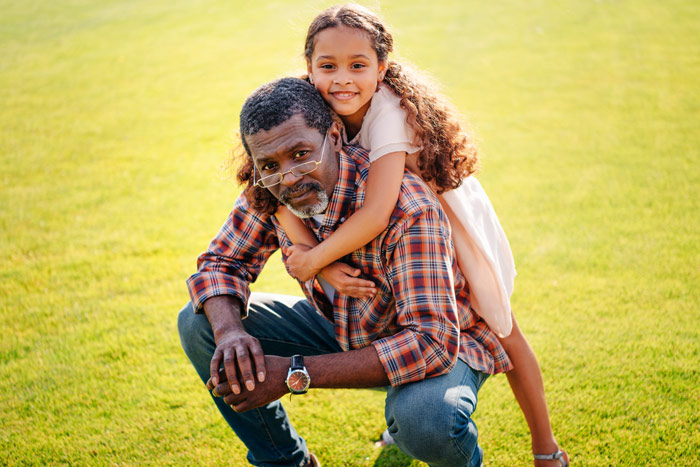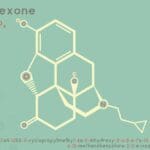Addiction Affects Everyone
Addiction is a biological illness that affects people from all walks of life, as well as their friends and family. As such, there often comes a point when you need to talk to your children about the addiction of a loved one—be it a parent, sibling, teacher, etc.
Since substance abuse is not a topic that even comes up enough among adults, the idea of discussing it with your child might make you feel panicky. Luckily, it is often easier to talk to kids because they have not yet been influenced by the social stigma surrounding addiction.
However, there are some concepts which surround addiction that are difficult to communicate to people of any age. Relapse, withdrawal, trauma, grief, fear, violence, abandonment, abuse, self-harm, and mental illnesses are hard to explain when you are struggling to understand them yourself. Possibly the most difficult question of all is when a child asks, “Why do bad things happen?”
One conversation will not be enough to provide the answers children need. These kinds of talks will likely need to be lifelong. They will be the most effective if they happen in tandem with creative approaches, empathy, patience, and professional help.
Seeking Therapy for Your Child
While it is true that it is best if you talk about addiction with your kids, sometimes it is necessary to involve an objective person who has training in working with children’s psychiatry and teaching them to cope in healthy ways.
This can especially be the case if you are the one suffering from the addiction, there is already some emotional distance in your relationship, or the child has endured trauma that could best be approached by a professional.
Just like with adults, every kid is different. Look into different types of therapy to find what works best. Keep an eye out for locations that offer trauma-informed approaches and a variety of programs (e.g. art and/or music therapy, physiotherapy, psychiatry, group therapy, etc.).
The Aviary Recovery Center’s Missouri drug and alcohol treatment program offers a family wellness program to provide support and a network for the loved ones of their clients. It can be incredibly healing and eye-opening for children to realize that they are not alone in their experiences and the way that they feel.
Using Books to Explain Addiction to Your Child
Books are an incredible resource that can give you the very language you need to express these difficult topics. Books are familiar, can be processed at the reader’s pace, and will be perceived as less threatening than a therapist’s office. They are effective for young children, visual learners, and kids with short attention spans.
The following are highly rated children’s books designed especially for those whose lives have been touched by addiction.
- A Terrible Thing Happened by Margaret M Holmes (recommended for ages 4-7) – This children’s book puts the emphasis on the child’s experience rather than the “terrible thing” itself. It has incredible reviews with many testimonies of successful breakthroughs when working through it with a child. For example, “I especially appreciated the representation of therapy. It helped my preschool-age child know what to expect—the talking and playing, and ultimately the feeling better.”
- Hear My Roar: A Story of Family Violence by Gillian Watts (recommended for ages 6-9 ) – This book tells the tale of Orsa Bear; how she and Mama learn how to respond to Papa becoming unreasonably angry after he has “had a lot of jack-berry wine.” Unfortunately, the reality is that domestic violence often takes place in families that are also plagued with substance abuse. It is important to also discuss these heavy aspects of addiction with children.
- Critters Cry Too by Anthony Curcio (recommended for K-5 grade) – This book explores how to respond to feeling “madsad.” It also provides some responsive structure for tackling questions that would surely arise in a young person’s mind who loves someone who is addicted: Is this my fault? Why does _______ act like this? Does ______ love me?
- You Weren’t With Me by Chandra Ghosh Ippen (recommended for K-6 grade) – This book can give children the words and tools they need to decipher how they feel in response to a parent’s absence due to substance abuse and recovery. “Little Rabbit needs Big Rabbit to understand what it felt like when they were apart…Big Rabbit listens carefully and helps Little Rabbit to feel understood and loved.” This story was designed to help parents and children talk about difficult separations, reconnect, and find their way back to each other.
- Hey, Kiddo by Jarrett J. Krosoczka (7-9 grade) – A National Book Award Finalist and Amazon bestseller, this young adult novel tells the story of a boy whose life has been shaped by his mother’s addiction and absence. He learns to cope through art but finds that suppressing and ignoring only works for so long. This would be an excellent book for older children who might feel like they are alone in their struggles, or that their experience is not worth much attention when compared with the person actually dealing with the substance abuse.
You can check out Canyon Vista’s blog post on this topic for an extensive list of more books and further age-specific options.
It is important to note that a book cannot be a replacement for having these difficult conversations. Furthermore, these are rarely bedtime stories. For them to be useful, you should go through these books with your child step-by-step when they are well-rested and open to understanding. Take breaks, answer questions, and reassure them that whatever it is that they’re feeling or thinking in response to the reading is valid.
Promoting Open and Honest Communication with Your Child
Remember, the worst thing that you can do would be to not talk about it. Of course, there is a time and a place for everything, and sensitivity and tact are necessary. By ignoring their loved one’s addiction, you could be silently affirming unhealthy coping mechanisms and self-reasoning to make sense of the way that they will inevitably be affected.
(This is in addition to the fact that addiction can often run in families. Children have the right to know that they will be more susceptible to developing one of their own.)
Some examples of dangerous thought patterns:
- “Dad’s always angry and won’t spend time with me anymore, but Mom won’t tell me why…I must have done something wrong and he’s punishing me for it. Mom must not love me anymore either.”
- “Nobody’s said anything about it, so I guess it’s normal that my sister keeps stealing liquor from my parents. I’ve found her drinking it alone every night this week. Maybe it’s just a ‘teenager thing’ and I’ll do that too when I’m her age.”
- “Mom’s been gone for two weeks now. I miss her so much but Dad won’t explain why she left or when she will return, just that she’s ‘sick.’ But when I was sick in the hospital, my friends got to visit me! I can’t bring her flowers or even talk on the phone with her. All of the secrecy makes me think that she’s never going to come back.”
- “Things are definitely going badly at home. But everyone in my family keeps trying to act like everything is fine. It makes me sad and scared, but how can I tell my friends or my coach if my own parents won’t admit that something’s wrong? I am probably just overreacting.”
No matter how uncomfortable it is, and even if it takes multiple attempts, at least trying to have a conversation will always be better than doing nothing. And remember that you do not have to do this alone! You might even find that talking about it helps you come to terms with and heal from some of these heavy topics.










